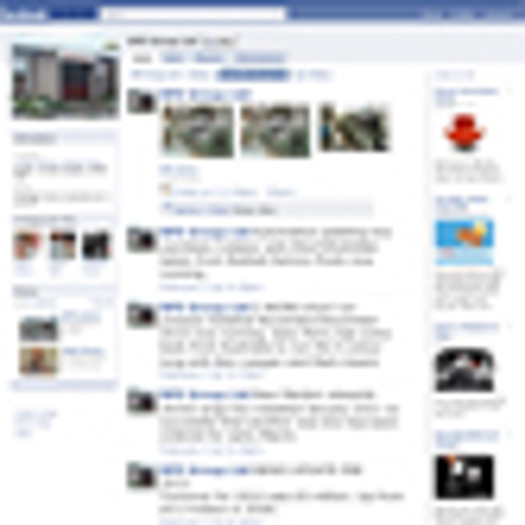I’m intrigued to see how this pans out. To my mind a Facebook presence makes sense for consumer-facing print brands such as Moonpig. And the industry’s most famous example of leveraging the purchasing potential of the 500m-plus people in the Facebook community is surely Tim Messom at KMCA in Nottingham, with his ‘save Tim from bankruptcy’ Facebook group that’s still going strong now, almost two years on from its inception. With more than 15,500 friends (that’s 12,000 more than Moonpig has, by the way) Tim would probably be able to retire if all his chums were regular customers. They aren’t of course, but his Facebook idea helped him turn things around. And a lot of his business is indeed directly with consumers ordering canvas prints of their own pics of friends, family and pets, so it works well for him.
Meanwhile, back in the world of B2B, I’m of the opinion that a Facebook page is not, repeat not, an essential requirement for most print businesses. It’s incredibly irksome when people stand up at conferences, talk knowingly about social media and start saying things like ‘I checked 100 printing companies and only 10 of them had a Facebook page’ in a pejorative way. Why on earth should they?
Access denied
A Facebook page or group is a completely pointless exercise for many printcos. And a lame page just-because-you-think-you-should, and that nobody’s actually interested in, is worse than no page at all. Also consider that plenty of companies, PrintWeek’s publisher included, do not routinely allow staff to access Facebook on their work computers, either.
I’m being quite specific about Facebook here, because for lots of people it’s something they use in their personal, as opposed to their professional lives. Whereas a site like LinkedIn is very definitely a business network, although the nature of personal contacts means the boundaries can be blurry. This was proved by the story about First 4 Print Finishing buying a nearly-new stitcher after a Grafitec salesman posted a cheeky message on managing director David Nestor’s wall. How about that for a 21st century sales technique?
Meanwhile, back with Business Forms Express I know of no other company other than BFE that has made such a radical move. I can certainly see the attraction for an SME of being able to easily update and customise their web presence using Facebook’s many facilities, though. For free.
Some pertinent comments have already appeared on our news story about some of the possible downsides. My own advice to BFE is to add a few more pictures of the sort of products the company can produce, and fewer pics of workers down the pub.
Good luck to them. A diary note has been made to follow up on how it’s worked out for them later in the year.
Jo Francis is contributing editor at PrintWeek
Have your say in the Printweek Poll
Related stories
Latest comments
"Very insightful Stern.
My analysis?
Squeaky bum time!"
"But in April there was an article with the Headline "Landa boosts top team as it scales up to meet market demand", where they said they came out of last year’s Drupa with a burgeoning order..."
"Yep. Tracked is king."
Up next...

Print services required
Trio of new tenders up for grabs

Greater automation and ease-of-use
Konica Minolta enhances AccurioPress C7100 series

Energy savings and wider gamut
Wilmot-Budgen takes first LED Onset

Weekly one million mark





